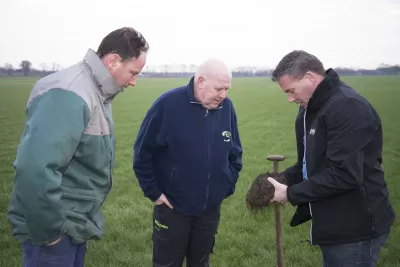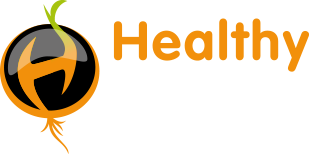Soil fertility is an important starting point for yield

The reason for detailing this innovative approach was the enormous inefficiency Karel Kennes came across daily in terms of soil use and roughage production. “Sowing corn on soil that was totally unsuitable. Fertilising because the manure pit was full. Cutting hay because the neighbour was doing it. Working with an obsolete and poorly operating machine park. Silage when the dry-solids content was wrong. The wrong quality of roughage in the rations of certain groups of animals. And I could go on”, explains Karel Kennes. Sometimes a lack of knowledge amongst dairy farmers was the cause of things going wrong. More often it was because of insufficient focus on roughage production and the limited options in terms of available land and machinery. Karel Kennes continues “You'd be amazed by the cost-price reduction if you dare to start looking at things together and in an integrated way. Moreover, a dairy farmer is not an arable farmer. Don' t expect him to start producing roughage in an arable-farming way.”
Fee per kilogram of milk
For Karel Kennes the most important question was whether dairy farmers were able to focus fully on their cows and dared to hand over decisions about soil. He opted for a trial year, where he lets interested dairy farmers experience how he organises and deals with the entire roughage production on their behalf. For that year they simply charge for the activities and that creates confidence for long-term cooperation. This year the first group of dairy farmers started charging a fixed fee per litre of milk. In exchange their land is farmed and they are provided with more than the required quantities and qualities of roughage. Karel Kennes says “Of course it is still a learning process. We are discussing it frequently as a group. It requires trust and transparency in costs, in yield and in the working methods to be used. However, I have a feeling that we are making big strides.” Dairy farmers, arable farmers and the contract worker are supported by independent cattle advisers and cultivation supervisors who are engaged by Mr Kennes and who are also paid per kg of milk. Together they work out an action plan for at least 5 years, where the dairy farmer is the controlling partner. The remuneration method means that everybody is focused on the same outcome and everybody takes responsibility for their own actions.
According to Mr Kennes, the major benefit is that they are looking at the combination of available land and available manure. This produces enormous efficiency benefits. “With our working method we achieve more and better roughage on the land than the individual dairy farmers on their own. Particularly because we work strongly on improving soil fertility. And because of our knowledge, focus and more modern machine park.
The contract worker from Brabant realises that not every dairy farmer is suited to this way of cooperating. “It requires courage to trust the qualities of another person. You need to be able to let go. You cover your risks at the same time. Many variable costs become fixed costs. Calculating dairy farmers quickly realise the benefits.”
One large database
An additional benefit of the new working method is that Mr Kennes plans his activities for the participating farmers himself. “It makes a more even work planning an option. I can also make do with a smaller machine park and that is efficient." The contract worker works with GPS links and digital work sources. All the activities, analyses performed and products used are recorded in detail in one large database. Milk productions, shed systems etc are recorded too. This system goes much further than completing the cycle guide. The independent consultants who support the projects and the businesses also use it. We learn from each other in service of the dairy farmer who needs to achieve a better yield. His success is our future.”
> Click here... and read more about "step by step to a fertile soil"
>Click here... and read more about practical experiences of participants in this concept

